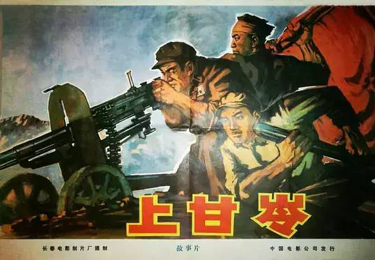
Last month China declared war on the United States. Strangely, the White House did not respond, the Pentagon did not raise readiness to Defcon 1, and global media did not take much notice. Did the world simply ignore China’s proclamation or were all eyes elsewhere?
A few eyes, however, did notice the production aired on May 25thby the Communist Chinese Party’s video outlet, Watermelon Video. The video quoted articles and editorials in the Global Times, a Chinese government news service, calling for a “people’s war” that targets the U.S. with “precision,” that China must not make any concessions, and adding, “Fortune favors the bold, all imperialists are paper tigers!"
And all the eyes in Hollywood wept when they saw China television ban the broadcasting of every Hollywood production as well as any Chinese-made films containing scenes shot in the United States. As Martha Bayles wrote in The American Interest, “Like most private-sector industries in the West, America’s film studios have long dealt with China in a way that places economic self-interest above all other considerations, from domestic prosperity to human rights to national security.” That slavish devotion to Chinese money now has Hollywood’s accountants burning the midnight oil, mourning the lost profits in the huge Chinese film market.
But Wall Street eyes don’t watch China’s movies. Instead they monitor their lucrative investments in Chinese companies on their stock tracking screens. First they saw Baoshang Bank in Mongolia fail, necessitating a $62 billion cash injection by Beijing. Then they read the MarketWatchreport on Hikvision, China’s giant closed circuit camera manufacturer. With a market cap of $33 billion, the company is a darling of investors like Aberdeen Standard Investmentsand Comgest.
The lengthy report details Hikvision’s infamous role in supplying surveillance cameras to China’s concentration camps that torture more than a million Uighurs, and confirms that everything seen by Hikvision cameras installed in other countries can be easily tapped by China’s hackers. Congress recognized Hikvision’s danger to U.S. national security last year and banned the federal government from buying its cameras. Hikvision’s sales in the U.S. then fell 7.6%, according to FactSetdata. And then there were the reports, two days ago, of proposed congressional legislation that will curb China’s evasive tactics that hide activities and financial data of their companies listed on American stock exchanges. That must have made Wall Street fund managers even more bleary-eyed.
Senator Marco Rubio wrote an oped published by the Wall Street Journalon the 4thof June that must have got the attention of Chinese Communist Party bosses as well as U.S. investors. In that oped, Senator Rubio began with, “Two decades after its accession to the World Trade Organization, China still uses its intertwined public and private sectors to serve the Communist Party’s mercantilist goals. Many Chinese businesses are listed on U.S. stock exchanges, but Beijing’s intransigence ensures that American investors often don’t get a true picture of those companies’ financial health.”
Then he noted a staggering fact: “The U.S.-China Economic and Security Review Commission identified 156 Chinese companies, including 11 state-owned-enterprises, that are listed on America’s three largest exchanges. Their combined market capitalization of $1.2 trillion means that significant American capital is exposed to the risk created by China’s lack of economic transparency.” (emphasis added).

After describing the bi-partisan legislation that he and Senator Menendez are sponsoring, the Equitable Act (Ensuring Quality Information and Transparency for Abroad-Based Listings on our Exchanges) he noted that when the Act becomes law, foreign companies that don’t make their audits available within three years will be delisted from all American stock exchanges.
Senator Rubio concluded: “China has reaped enormous economic rewards while exploiting the freedom and openness of the U.S.-led global order. Now, the U.S. and its allies must send a clear message: If Chinese companies want to be listed on U.S. exchanges, they must comply with American laws and regulations for financial transparency and accountability.” The law will at last force the S.E.C. to do their mandated job of requiring a Chinese company to be as compliant as a U.S. company.
Jim Cramer, a CNBC journalist, summed it all up nicely. He said, “At the end of the day, the People’s Republic needs our commerce a lot more than we need their commerce. The United States is a cash-fueled economy, the People’s Republic of China is a debt-laden house of cards. They need our money, but do we really need their cheap stuff? We’re winning, regardless of what you think of Trump. The truth is that China is a paper tiger, something that's obvious if you just look at the darned numbers.”
The Chinese communists should look deeply into a mirror. Their declaration of war put the “paper tiger” label on the wrong cat.
Chet Nagle is a founding member of The Committee on the Present Danger.
Subscribe to our evening newsletter to stay informed during these challenging times!!